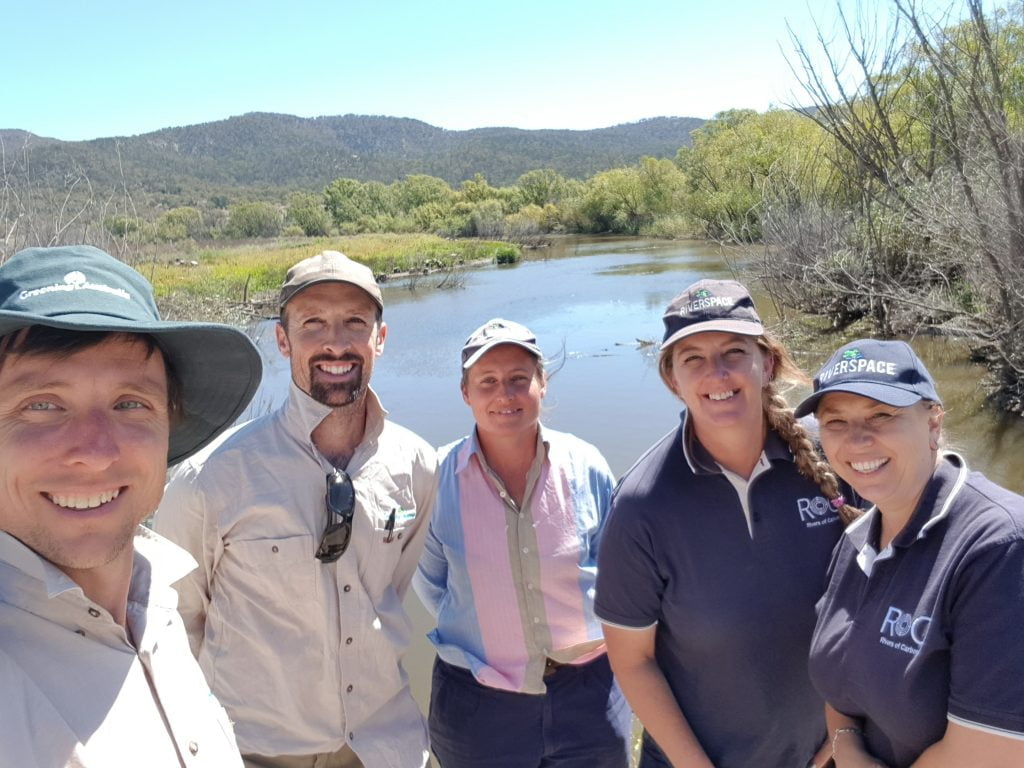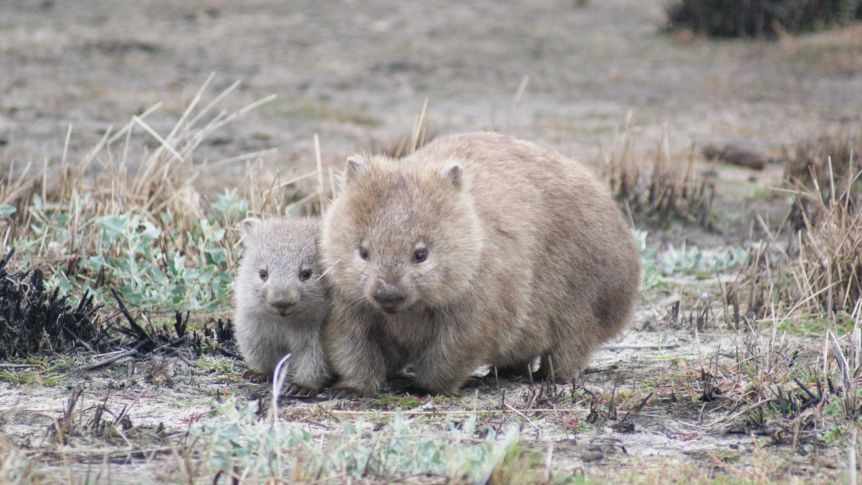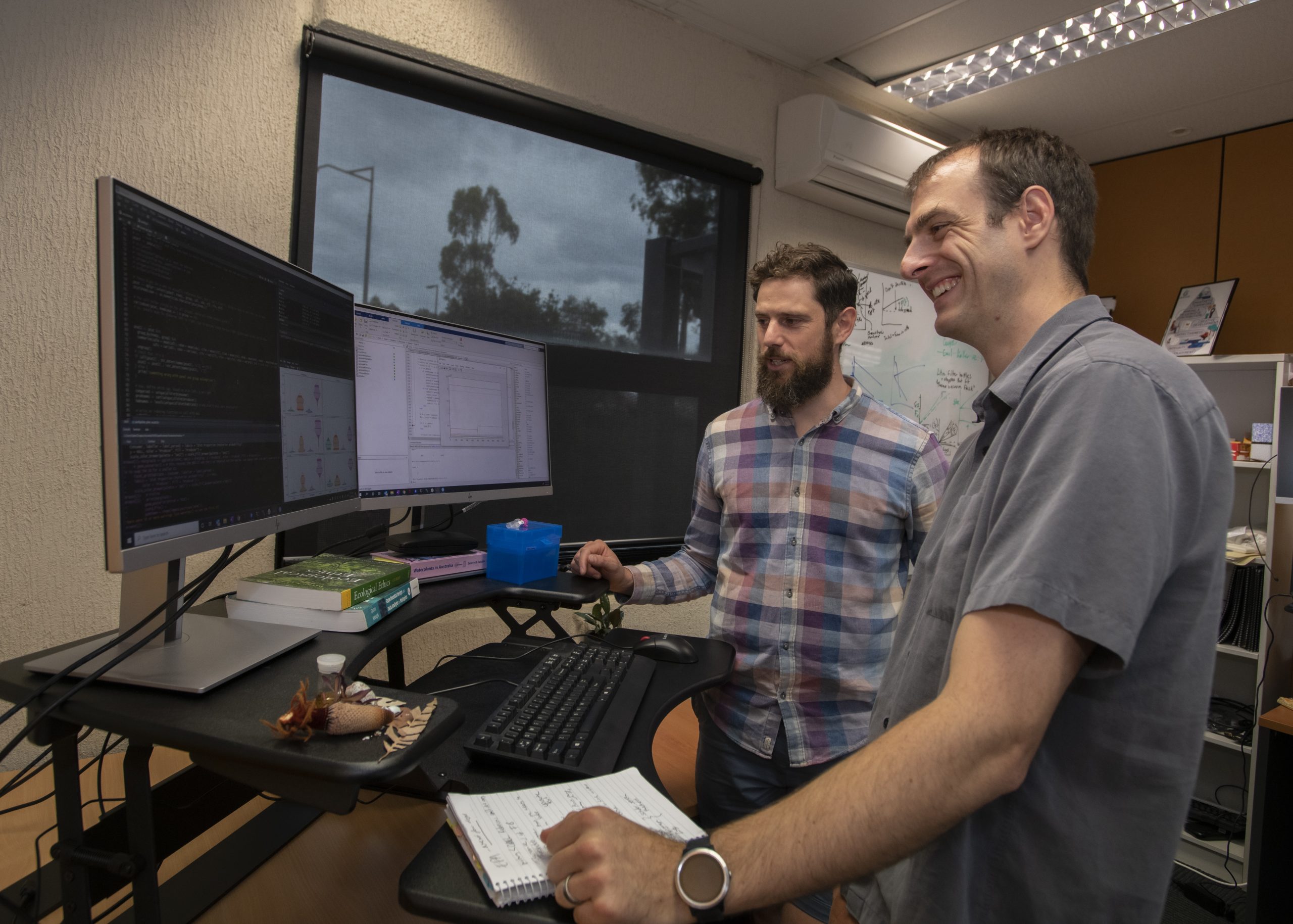ARRC NEWSLETTER – MARCH 2021 EDITION
Recover & Rejuvenate
Hello friends,
The theme for this newsletter is ‘Recover and Rejuvenate’ – something we all need to do. In anticipation of some ‘Recovery’ time, Tom and I spent the weekend up at our property ‘Cockatoo Ridge’ getting ready for our Easter Camp. We are so looking forward to the four days we will spend with friends camping alongside the Murrumbidgee. As we worked to clear the serrated tussock (yes, a big weed issue for us) we discovered that our camping spot is also very popular with wombats. Just as well Kate and I have been working on a new ‘Wombat behaviour, burrows and being neighbours’ Riparan Real Estate Guide! You can find it in this newsletter.
As I looked out over the river, I reflected on how fortunate we have been at Cockatoo Ridge not to have been burnt in the fires. For those landholders downstream who were not so lucky, we are at least able to help with the support of a new partner – The Caterpillar Foundation. The Caterpillar Foundation are funding Greening Australia and the ARRC to work in the Bumbalong Valley to prevent large deposits of ash and silt washing into the river. This new project is called ‘Recovering our Rivers – After the Fires’, and you can read more about it in this edition.
We have also included a new resource produced with Two Green Threads which is all about the trauma we experience as a result of bushfires, and what we can expect in terms of our recovery over a three-year period – yes three years – that is how long it takes to process the overwhelm and experience of bushfires. You don’t have to be a wildlife volunteer to benefit from reading and using this Recovery Tips after Bushfires Guide so please share widely. As you ‘Recover and Rejuvenate’ we have also provided a new podcast with Jamie Pittock for you to listen to, along with some Flow-MER stories.., and make sure you go to the bottom of the newsletter to enjoy a fun look at setting up tents. We hope you have a restful Easter – you are worthy of time to recover and rejuvenate.
Siwan, Pat, Lori, Ian, Masha, Matt, Kate, and Antia 🙂
RIVERS OF CARBON – NEW PARTNERSHIP AND PROJECT
Rivers of Carbon – Recovering our Rivers ‘After the Fire’
We are delighted to announce a new project funded by The Caterpillar Foundation to enable Greening Australia, the Upper Murrumbidgee Demonstration Reach and the Australian River Restoration Centre to support landholders in the aftermath of the 2020 fires. Recovering our Rivers – ‘After the Fire’, is a practical, focused response designed to help landholders grapple with the immense damage sustained to their properties as a result of a fire storm, followed by a mass erosion event, which swept through parts of the Upper Murrumbidgee earlier this year. By supporting landholders through the installation of erosion structures to prevent high amounts of sediment and ash entering the river, the project will provide people with the reassurance that they are not alone in facing the devastation the fires left behind. We will also be putting some fish hotels in parts of the river where we know our Macquarie Perch need some additional habitat.

ARRC – CONVERSATION OVER A CUPPA PODCAST
Is raising dam walls an effective strategy to manage climate change impacts?
In this episode, Siwan and Professor Jamie Pittock discuss whether raising dam walls is an effective management strategy to address our changing climate. They discuss the current proposal to raise the Warragamba Dam wall in outer Sydney, and whether the stated aims of it being to address flooding and protect downstream communities, will actually be achieved. Jamie has worked for the World Wide Fund for Nature, and is a member of the Wentworth Group of Concerned Scientists and World Commission on Protected Areas. He is also on the Advisory Board of the Nature Conservancy. He is now based at the Fenner School at the Australian National University where he teaches and writes across environment, society and climate change adaptation topics. In their conversation, Siwan and Jamie discuss the ecological and cultural consequences of the proposal to raise the dam wall, and highlight how a multi-million dollar ‘flooding’ solution is likely to fail.

RIVERS OF CARBON – RIPARIAN REAL ESTATE GUIDE SERIES
Wombat behaviour, burrows and being neighbours
Our Riparian Real Estate Guides are proving to be very popular which is testament to a busy Kate working with us to produce great materials for all of us working in river management. Our latest Guide focuses on wombats, one of our iconic native animals that find riverbanks particularly enticing. Although it is tempting to see the ‘damage’ they do building their houses in the banks of creeks and rivers, it is also important to appreciate the fact that they are one of the few native animals that have adapted well to the changes we humans have made to the landscape that was once their home. This guide provides information about how wombats behave, their protected status and what you can and cannot do in terms of negotiating neighbourly living arrangements.

RECOVERY TIPS POST BUSHFIRE
Last Summer’s bushfire season left a toll on many people, Dr Rob Gordon, a psychologist and bushfire survivor, has been working in the field of post disaster recovery for near on 40 years. Through our work at Two Green Threads we have developed a Recovery Tips post Bushfire resource that you may find helpful as it charts what you can expect over the next few years as we process and reflect on the impact of the fires. Dr Gordon’s words remind us that the path for recovery for each of us is unique and that our sense making can take time.

FLOW – MONITORING, EVALUATION AND RESEARCH PROGRAM
Flow-MER Friday Series 2 – Webisodes now available
We have just completed Series 2 of our Flow-MER Webinars and they are all now available for you to access in your own time. In this series we had our researchers team up with environmental water managers from the Commonwealth Environmental Water Office and partners to link our science to practical management actions. The webisode topics are:
- Using environmental water to manage for resilience
- What can reptiles and frogs tell us about environmental flow delivery
- Characterising environmental flows using hydrology
- Assessing soil and plants from the sky: A new era in waterway monitoring using drones
- Why modelling matters

INSPIRATION
So this month’s inspiration is just a bit of fun for all of us who are heading off camping… or not!
PLEASE CONSIDER MAKING A DONATION GIFT TO KEEP US DOING WHAT WE DO BEST
Have you enjoyed reading our newsletter and watching the videos we have provided? If so, you might like to give us a donation that reflects what you feel this newsletter means to you. We rely on donations to keep sharing knowledge and staying in touch. As a registered charity recognised under the ACNC, we report to them every year about the contributions people have made in the form of donations. When you donate we can demonstrate that we are valued, and that people are willing to support to us so we can continue to build future resources for you and others alike.
Or send your donation via Direct Transfer:
Westpac Bank
ARRC Public Fund
BSB: 032-730
Account: 198844
If using direct transfer please have as the reference your name & date of donation. I can send you a receipt if required, just email enquiries@arrc.com.au with the details of your donation. Thank you 🙂

